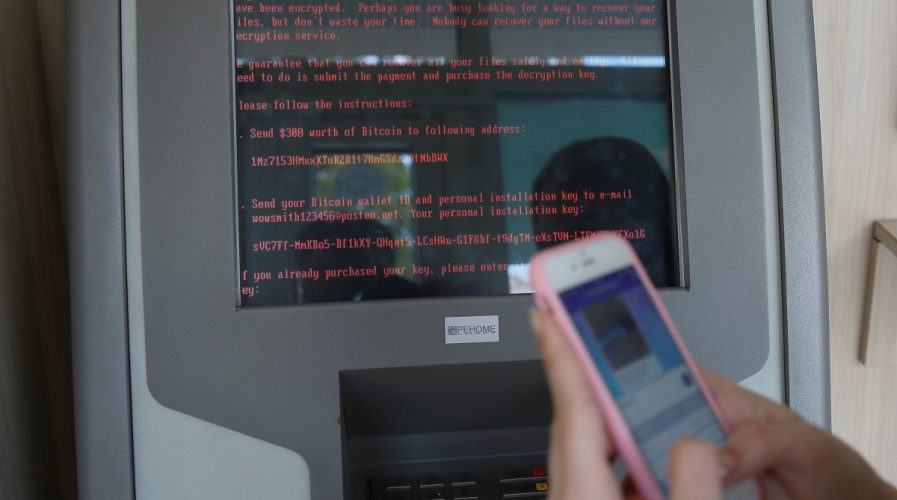
The mobile payment industry is heating up and nowhere is that more true than in Asia Pacific. Source: Reuters
Malaysia is a hotbed for mobile remittance growth
THE MOBILE MONEY competition in Asia is heating up. Worldwide top industry executives have slated the region as a global leader in payments innovation and according to the United Nations, the most dynamic growth in remittances over the past decade has been in Asia.
This September, WorldRemit – a UK-based but global serving digital money transfer service which allows transfers to over 140 countries – launched in Malaysia following its acceptance as one of only four entrants into Bank Negara’s Financial Technology Regulatory Sandbox.
The company, which was started by refugee-turned-entrepreneur Ismail Ahmed, is already in Hong Kong and Japan and has recently expanded to Vietnam, Singapore, India and the Philippines. The APAC region now accounts for almost 25 percent of all its transactions.
WorldRemit’s Asia Pacific head Michael Liu discusses the potential for mobile remittance in Malaysia and APAC.

Liu says he believes future growth will come from the digital space. Source: World Remit
How has Bank Negara’s Financial Technology Regulatory Sandbox helped WorldRemit?
Our online digital model suits the objective of the sandbox which is to find and trial new technologies to provide financial services to Malaysians. Typically, to operate in a country a remittance licence is needed which involves a lot of regulation; however, technology is moving much quicker than regulators.
The Sandbox allows us to work in Malaysia, reporting and working closely with the regulator, as well as to help Bank Negara create regulations to fit a fintech company like ours. The Sandbox is beneficial because it allows the regulators to develop regulation in a practical manner.
Is current Malaysian fintech regulation cumbersome?
We find that the regulator is flexible and co-operative, and works with us frequently. Most regulators within APAC countries recognise that fintech should be fostered so their economy is competitive.
Looking at Malaysia, I think there is a government culture of fostering fintech and welcoming new technologies with the recognition that digital companies can ensure the local economy prospers. Malaysia also has a Digital Free Trade Zone, and recently it was reported that the Securities Commissioner has signed a co-operation agreement with the Singaporean regulator to foster fintech innovation.
SEE ALSO: Remittance startups moving into Asia face stiff competition
Could we see standardized fintech regulation across the region?
I think it makes sense to have an almost unified code of regulations for fintech companies because their needs are not restricted, in an operational technical sense, from country to country – being online and digital allows us to overcome the natural barriers that apply to brick-and-mortar companies. So there should be, if not global, but regional regulation for fintech companies.

Liu says APAC has the potential for strong growth in remittances because of its middle class and well-travelled youth. Source: WorldRemit
Why are mobile remittances growing in Asia?
From our experience, APAC has grown because there is more wealth in Asian countries, such as Hong Kong, Singapore, Japan, China and Malaysia. With strong economies and the growth of the middle class comes demand for consumer goods. Furthermore, many people now migrate and send their kids to universities and schools around the world. I think we are seeing more mobility of migrants from Asia and a key indicator for transactions from remittance companies, such as ourselves, is the growth of migration. I don’t see that changing significantly.
SEE ALSO: Malaysia: Central bank issues first licences for fintech sandbox
How competitive is the market?
Latest figures from the World Bank show the remittance industry is worth approximately US$600 billion. However, 95 percent of global remittances are still cash-based.
We believe future growth will come from the digital space; the online proportion will grow to around 60 percent over the next five years. For a market of US$600 billion, five percent is still a large number. So there is certainly a lot of business market share to go around. Remittances have been around for an age, but traditionally as an offline market and as an informal market – people sending money home in envelopes, in the post or via friends – we are now seeing less of this.
When talking about fintech disruption, remittances cover one of the few services which are currently being disrupted, but it is still in its infancy. This represents a huge opportunity for those in the online space to capture that market share. It is really is changing the way money is being sent.
READ MORE
- Ethical AI: The renewed importance of safeguarding data and customer privacy in Generative AI applications
- How Japan balances AI-driven opportunities with cybersecurity needs
- Deploying SASE: Benchmarking your approach
- Insurance everywhere all at once: the digital transformation of the APAC insurance industry
- Google parent Alphabet eyes HubSpot: A potential acquisition shaping the future of CRM
